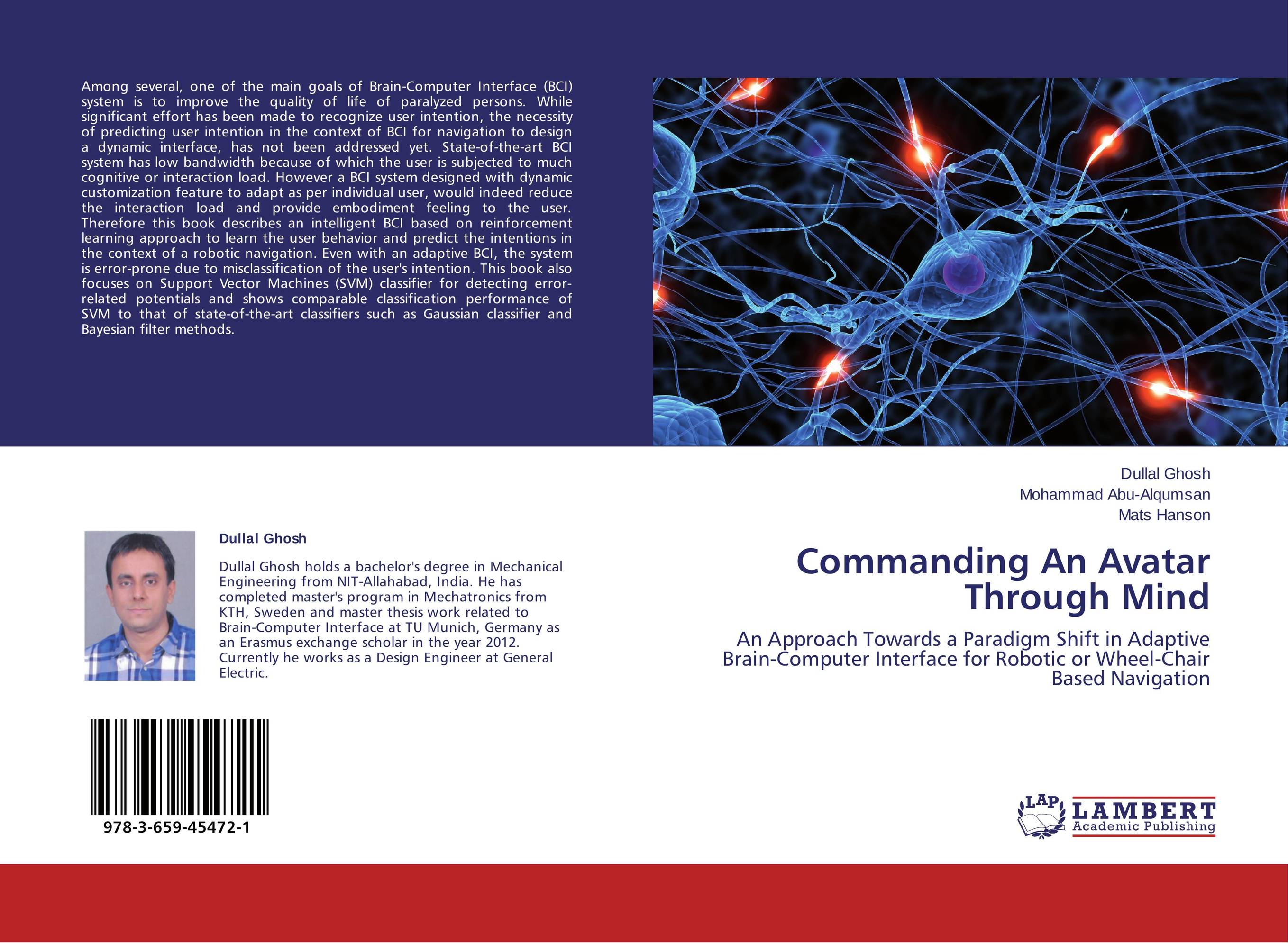| Поиск по каталогу |
|
(строгое соответствие)
|
- Профессиональная
- Научно-популярная
- Художественная
- Публицистика
- Детская
- Искусство
- Хобби, семья, дом
- Спорт
- Путеводители
- Блокноты, тетради, открытки
Commanding An Avatar Through Mind. An Approach Towards a Paradigm Shift in Adaptive Brain-Computer Interface for Robotic or Wheel-Chair Based Navigation

В наличии
| Местонахождение: Алматы | Состояние экземпляра: новый |

Бумажная
версия
версия
Автор: Dullal Ghosh,Mohammad Abu-Alqumsan and Mats Hanson
ISBN: 9783659454721
Год издания: 2013
Формат книги: 60×90/16 (145×215 мм)
Количество страниц: 68
Издательство: LAP LAMBERT Academic Publishing
Цена: 15749 тг
Положить в корзину
Позиции в рубрикаторе
Отрасли экономики:Код товара: 128774
| Способы доставки в город Алматы * комплектация (срок до отгрузки) не более 2 рабочих дней |
| Самовывоз из города Алматы (пункты самовывоза партнёра CDEK) |
| Курьерская доставка CDEK из города Москва |
| Доставка Почтой России из города Москва |
Аннотация: Among several, one of the main goals of Brain-Computer Interface (BCI) system is to improve the quality of life of paralyzed persons. While significant effort has been made to recognize user intention, the necessity of predicting user intention in the context of BCI for navigation to design a dynamic interface, has not been addressed yet. State-of-the-art BCI system has low bandwidth because of which the user is subjected to much cognitive or interaction load. However a BCI system designed with dynamic customization feature to adapt as per individual user, would indeed reduce the interaction load and provide embodiment feeling to the user. Therefore this book describes an intelligent BCI based on reinforcement learning approach to learn the user behavior and predict the intentions in the context of a robotic navigation. Even with an adaptive BCI, the system is error-prone due to misclassification of the user's intention. This book also focuses on Support Vector Machines (SVM) classifier for detecting error-related potentials and shows comparable classification performance of SVM to that of state-of-the-art classifiers such as Gaussian classifier and Bayesian filter methods.
Ключевые слова: Reinforcement learning, Support Vector Machines, electroencephalography, Data Classification, Markov Decision Process, Adaptive User Interface, Brain-Computer Interface, Paralyzed Person, Robotic Navigation, Error-related Potentials



